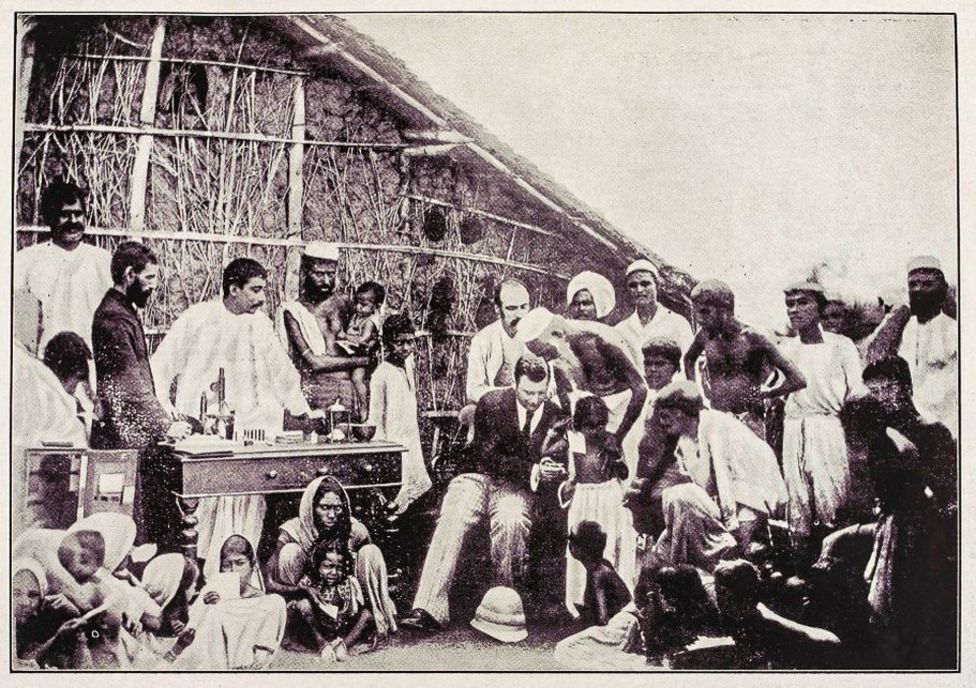Pioneer Waldemar Haffkine Created The 1st Vaccines For Cholera & Plague But Was Forgot

- Haffkine inoculating villagers in Calcutta, India, 1894.
Waldemar Haffkine: The vaccine pioneer the world forgot. BBC News, Dec. 11, 2020.
Working in Paris and India at the turn of the last century, Waldemar Mordecai Haffkine created the world's first vaccines for cholera and plague. Then an accidental mass poisoning derailed his life. In the spring of 1894, Waldemar Haffkine travelled to Calcutta in the Indian province of Bengal in search of cholera. Spring was cholera season in the city, and Haffkine was hopeful.
He had arrived in India the previous March armed with what he believed was a vaccine for the disease, but he struggled all year to make progress testing his creation.
From the moment of his arrival, Haffkine was met with scepticism and resistance from some of the British medical establishment and the Indian public. He was not a doctor but a zoologist. And he was a Russian Jew who had trained in Odessa and developed his skills in Paris, at a time when the world of international bacteriology was factional and prone to suspicion. Haffkine, who was 33 when he landed in India, also struggled with the practical side of testing his vaccine. His first iteration required two injections, separated by a week, and his team sometimes struggled to locate test subjects for the second prick.
And despite the wide spread of cholera in India, finding it in sufficient concentration wasn't straightforward.
Haffkine inoculated about 23,000 people that year in northern India, according to his own records, "but no cholera appeared in their midst to show whether the vaccine was of value or not".
Then in March 1894, Haffkine got a break. He was invited to Calcutta by the medical officer there to help identify cholera bacilli in a water tank in one of the city's bustees - isolated villages on the outskirts of the city consisting of mud huts clustered around ponds or tanks and inhabited by the city's poor. The families living in these bustees drank collectively from the shared water sources, making them vulnerable to periodic outbreaks of cholera.
To Haffkine, the bustees were an ideal proving ground for his nascent vaccine. In each household, he had a group of people living in identical conditions, equally exposed to cholera. If he could inoculate some of each family and leave some untreated, with enough participants he might finally produce some meaningful results...
https://www.bbc.com/news/world-asia-india-55050012
